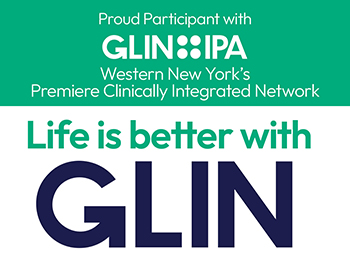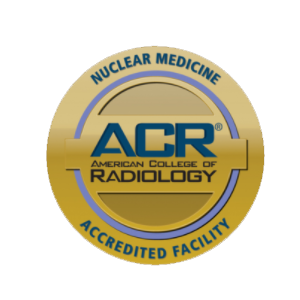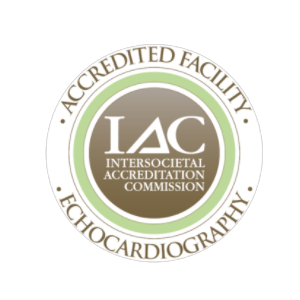 New colorectal surgeon at Kaleida Health talks about risk factors for colon cancer, surgical intervention and the need for colon screening at age 45 instead of 50
New colorectal surgeon at Kaleida Health talks about risk factors for colon cancer, surgical intervention and the need for colon screening at age 45 instead of 50
By Christopher Motola
Q: You’re new to the area, correct?
A: I’m new to Buffalo. I did my colorectal fellowship training in Chicago and generally surgery training in Albany. My husband did his residency in Albany and is from Buffalo, so that’s what brought us here.
Q: What conditions do you treat as a colorectal surgeon?
A: We treat colon, rectal and anal cancers. We treat diverticulitis and the complications related to that. We treat inflammatory bowel disease, Crohn’s disease and ulcerative colitis. We do screening colonoscopies as well as surveillance and diagnostic for people with known conditions. Any problems related to proctology — hemorrhoids, fistulae, rectal prolapse and pelvic floor dysfunction.
Q: What got you interested in your specialty?
A: I think a few things. My residency training was really wonderful and diverse and colorectal surgery drew my attention. It has all the great things that come with general surgery. You’re operating in the belly, often fixing problems that are very detrimental to a patient’s health and well-being. They can be painful things like hemorrhoids or fissures that people don’t like to talk about. In regards to cancer management, colorectal cancer is the No. 3 most diagnosed cancer in the U.S. When it’s diagnosed early and you treat it surgically, it has really great outcomes. So it’s really amazing to be a part of such an effective treatment.
Q: It seems like there’s been greater awareness of colorectal cancer in the last decade or so. What kind of impact is that having on your work?
A: Yeah, there is actually an increase in colorectal cancer screening across all races, which is great because we’re able to detect pre-cancerous lesions earlier. What we have noted amongst the decrease in patients dying of colorectal cancer is an increase in the detection of it amongst younger patients. There’s been a recommendation that we start screening for colorectal cancer at age 45 instead of 50.
Q: Is that due to an increase in prevalence of colorectal cancer, or have we just gotten better at detecting it?
A: It’s an increase in prevalence for some reason that’s not really understood at the moment.
Q: What are the risk factors of colorectal cancer?
A: Several things. One is hereditary factors, so if you have family members who have had colorectal cancer, you should be screened more frequently. There are also some foods that have been associated with increased risk of colorectal cancer. Red meat and alcohol in particular. Smoking is also a risk factor. Inflammatory bowel diseases also increase risk.
Q: How responsive are these cancers to surgical intervention?
A: It depends on the stage of the cancer. If it’s caught early and is just local to the bowel, and hasn’t spread to the lymph nodes or other organs, it has a cure rate of about 85% – 90%. Unfortunately that goes down as the cancer progresses.
Q: How long is the procedure? What’s the recovery like?
A: Most patients these days are able to get laparoscopic or robotic procedures. In those patients we’re usually talking about a two- to four-day hospital stay. You’ll be out of work for a couple weeks thereafter. But you’re usually back to your normal activities by around six weeks. The minimally invasive approach certainly has improved outcomes both in regards to pain management and post-operative restrictions, and in decreasing readmission. So it’s a big improvement all around. We’ve also implemented ERAS (Enhanced Recovery After Surgery) protocols which have helped decrease complications and length of stay. Basically it involves pain management and decreasing narcotic use, early advancement to a diet. We’ve found that very beneficial to full patient recovery.
Q: How did a systemic autoimmune disease like Crohn’s come to be so heavily associated with colorectal surgery?
A: Yeah, it is. It affects the whole GI tract from mouth to anus, but the area in which it’s most likely to cause disease is the terminal ileum, which is at the end of the small bowel, where it meets the colon. I’m not sure, historically, how colorectal surgeons came to manage it, but it is a part of our training. It works well because we work with gastroenterologists quite regularly, so we collaborate on managing it.
Q: How well are you able to manage that disease?
A: It depends on the severity and disease processes. Fistulae can be a problem around the anus. A lot of patients are managing very well with medication and may not need surgery ever. If they do need surgery, a minimally invasive approach is usually adequate. Unfortunately, because of the nature of Crohn’s disease, there’s always a chance it will re-occur in another part of the GI tract. But the medications have improved outcomes quite a bit.
Q: How well are you able to get to know your patients before operating on them?
A: Ideally as well as possible. It’s a big deal, trusting someone with your body while you’re on the operating table. I think making the patients and their families as comfortable as possible is really important in ensuring good outcomes. Often, we’re operating on patients we’ve met in the hospital and have followed up with them in clinics before making the decision to proceed with surgery, and have given them the time to ask questions.
Lifelines
Name: Jessica Martinolich, M.D
Position: Clinical assistant professor of surgery at Jacobs School of Medicine and Biomedical Sciences
Hometown: Huntington, New York
Education: Medical degree from Albany Medical College (2014); residency in general surgery at Albany Medical Center (2019); fellowship in colon and rectal surgery at John H. Stroger Cook County Hospital in Chicago (2020)
Affiliations: Kaleida Health System; Millard Fillmore Suburban Hospital; Buffalo General
Organizations: American Society of Colon and Rectal Surgeons; Society of American Gastrointestinal and Endoscopic Surgeons
Family: Husband; one 3-month old; one husky
Hobbies: Kayaking, hiking, skiing

 APPLY ONLINE TODAY!
APPLY ONLINE TODAY!




